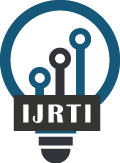|
International Journal for Research Trends and Innovation
International Peer Reviewed & Refereed Journals, Open Access Journal
ISSN Approved Journal No: 2456-3315 | Impact factor: 8.14 | ESTD Year: 2016
Scholarly open access journals, Peer-reviewed, and Refereed Journals, Impact factor 8.14 (Calculate by google scholar and Semantic Scholar | AI-Powered Research Tool) , Multidisciplinary, Monthly, Indexing in all major database & Metadata, Citation Generator, Digital Object Identifier(DOI)
|
Issue: December 2025
Volume 10 | Issue 12
Review Result and Publication of Paper within : 2-3 days
Click Here For more DetailsFor Authors
Forms / Download
Published Issue Details
Editorial Board
Other IMP Links
Facts & Figure
Impact Factor : 8.14
Issue per Year : 12
Volume Published : 10
Issue Published : 115
Article Submitted : 19482
Article Published : 8050
Total Authors : 21282
Total Reviewer : 770
Total Countries : 145
Indexing Partner
Licence
This work is licensed under a Creative Commons Attribution-NonCommercial 4.0 International License







|
Published Paper Details
|
|
| Paper Title: | Emodin as an alternative to Pazopanib aided inhibition of tumor angiogenesis: an explicit molecular docking analysis |
| Authors Name: | Taseem A. Mokhdomi , Shoiab Bukhari , Asif Amin , Qazi Danish , Sajad H. Wani |
| Download E-Certificate: | Download |
| Author Reg. ID: |
IJRTI_170589
|
| Published Paper Id: | IJRTI1712003 |
| Published In: | Volume 2 Issue 12, December-2017 |
| DOI: | |
| Abstract: | Fibroblast growth factor receptor-2 (FGFR-2) primarily regulating mitogenesis and differentiation, is considered as a major prognostic biomarker as well as a therapeutic target in human solid tumors. Most of the therapeutic drugs have been designed to target its catalytic domain which inhibit tyrosine phosphorylation of its kinase domain and hence block its downstream signaling. In this study, we analyzed selected drug-leads from western himalayan chemiome for their ability to bind and selectively inhibit FGFR-2 activation. Structure based bioinformatics were employed to select lead compound(s) targeting catalytic domain of FGFR-2. Out of 120 compounds from selective western himalayan chemiome library, Emodin showed best binding-affinity with catalytic domain of FGFR-2 blocking ATP binding. The binding efficiency of Emodin was comparable to Pazopanib, FDA approved Tyrosine Kinase Inhibitor which is a potent and selective inhibitor of FGFR-2 currently in clinical trials. To further corroborate these findings, we evaluated binding efficiency of Emodin in 2 constitutively active mutants of FGFR-2 viz N549T and E565A. Emodin efficiently blocked ATP pocket in their respective catalytic domain comparable to Pazopanib. The results in this study thus not only project Emodin as a lead molecule to overcome FGFR-2 mediated tumor mitogenesis but also demonstrates its potential as a tyrosine kinase inhibitor to overcome tumor angiogenesis. |
| Keywords: | FGFR-2; Tyrosine Kinase Inhibitors; Pazopanib; Emodin; Molecular Docking Simulation. |
| Cite Article: | "Emodin as an alternative to Pazopanib aided inhibition of tumor angiogenesis: an explicit molecular docking analysis", International Journal of Science & Engineering Development Research (www.ijrti.org), ISSN:2455-2631, Vol.2, Issue 12, page no.14 - 17, December-2017, Available :http://www.ijrti.org/papers/IJRTI1712003.pdf |
| Downloads: | 000205157 |
| ISSN: |
2456-3315 | IMPACT FACTOR: 8.14 Calculated By Google Scholar| ESTD YEAR: 2016 An International Scholarly Open Access Journal, Peer-Reviewed, Refereed Journal Impact Factor 8.14 Calculate by Google Scholar and Semantic Scholar | AI-Powered Research Tool, Multidisciplinary, Monthly, Multilanguage Journal Indexing in All Major Database & Metadata, Citation Generator |
| Publication Details: |
Published Paper ID: IJRTI1712003
Registration ID:170589
Published In: Volume 2 Issue 12, December-2017
DOI (Digital Object Identifier):
Page No: 14 - 17 Country: Srinagar, Jammu & Kashmir, India Research Area: Biological Science Publisher : IJ Publication Published Paper URL : https://www.ijrti.org/viewpaperforall?paper=IJRTI1712003 Published Paper PDF: https://www.ijrti.org/papers/IJRTI1712003 |
| Share Article: | |
|
Click Here to Download This Article |
|
| Article Preview | |
|
|
|
Major Indexing from www.ijrti.org
| Google Scholar | ResearcherID Thomson Reuters | Mendeley : reference manager | Academia.edu |
| arXiv.org : cornell university library | Research Gate | CiteSeerX | DOAJ : Directory of Open Access Journals |
| DRJI | Index Copernicus International | Scribd | DocStoc |
ISSN Details
 |
 |
ISSN: 2456-3315
Impact Factor: 8.14 and ISSN APPROVED,
Journal Starting Year (ESTD) : 2016
DOI (A digital object identifier)
 Providing A digital object identifier by DOI.ONE How to Get DOI? |
Conference
Open Access License Policy
Important Details
Join RMS/Earn 300
WhatsApp
Click Here
Click Here
Indexing Partner |
|||
| Copyright © 2025 - All Rights Reserved - IJRTI | |||






